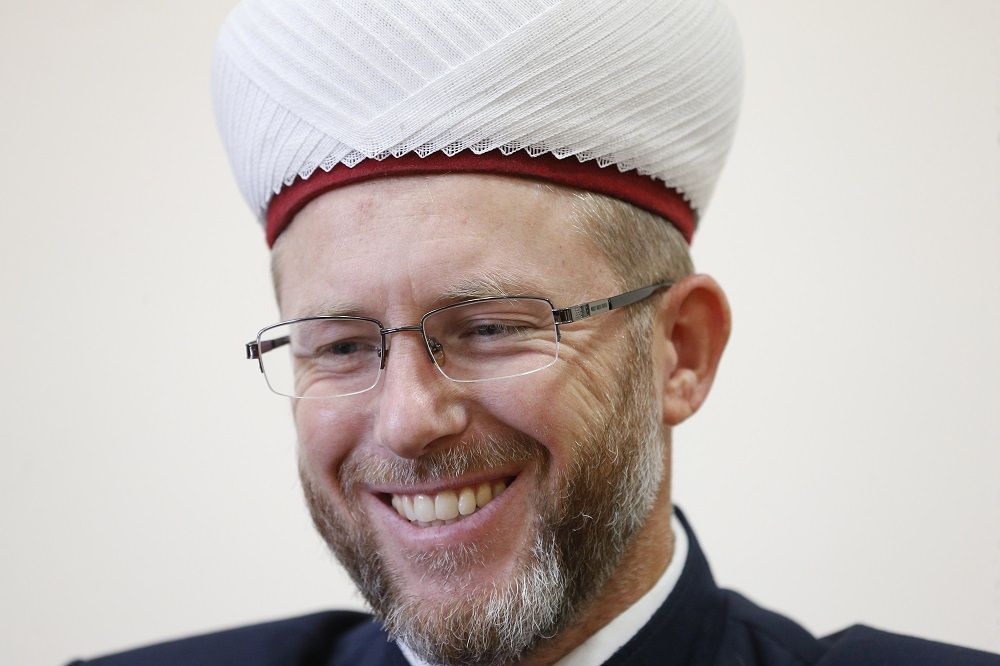
Sheikh Said Ismagilov: Terrorists could be of any religion. Like "Russian Orthodox Army" in Donbas... But no one has ever used the term "Orthodox terrorist"
Mufti of the Religious Administration of Muslims of Ukraine “Ummah” Sheikh Said Ismagilov sat down with UNIAN to speak about Ukrainian Muslims under the occupation, the differences between the Muslims in Western and Central Europe, the global trend of Islamophobia, the Kremlin’s anti-Muslim policy, and why Islam in Russia is controlled by the FSB security service.
You became Mufti in 2009. What is your mission, what does mufti do?
It so happened that the essence of the position differs depending on the country. For example, in Arab countries, a mufti is a theologian in pure form, dealing exclusively with religious issues. In the countries of the former Russian Empire, historically, religious activities were combined with managerial and organizational efforts. According to the structure of religious administrations, which has been set up several centuries ago, the muftis are not only theologians, they also manage the life of Muslims in the country. Muftis deal with organizational and financial issues, appoint imams, seek sponsors for the construction of mosques, opening schools, printing Koran. In the Muslim world, there is simply no other body similar to the religious administrations, so these issues are dealt with by special funds or even by religious ministries.
I was elected Mufti on January 25, 2009. Over the first few years, until 2012, I served in Kyiv, but then moved to Donetsk, to supervise the religious activities of Muslims from Donetsk. The fact is that without taking into account the Crimean peninsula, where there was their own religious administration (and we did not interfere in their affairs), it was Donbas where most Muslims lived.
How many?
Before the occupation, there were approximately 450,000 Muslims in Crimea, mostly Crimean Tatars. And some 250,000 Muslims lived in Donbas.
Is there any updated statistics on how many Muslims live in Ukraine?
There is no exact statistics. Together with temporarily occupied areas, there is about one million Muslims living here.
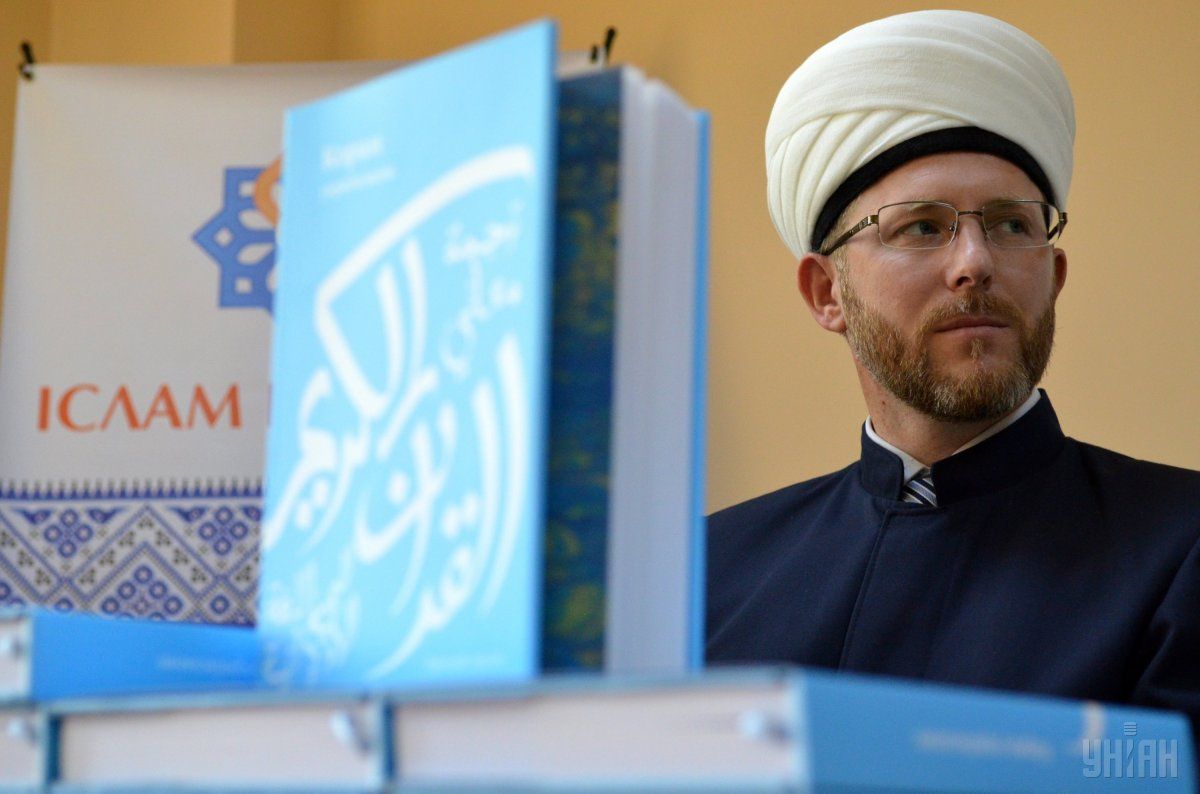
We lost some of the Muslims due to the fact that the Meskhetian Turks moved to Turkey. This is a group of Turks who were deported from their historical homeland during the Stalin regime. After the collapse of the Soviet Union, most of them returned to Ukraine, not to Caucasus. When the military conflict in Donbas erupted, the Meskhetian Turks appealed to the Turkish government with a request to be received in Turkey. The authorities responded positively and so, the last group of resettlers was supposed to leave in August or September.
You are yourself an internally replaced person from Donetsk. How did you get along with the fact that you needed to resettle?
Over my first weeks here in Kyiv, I saw war in my dreams. While dreaming, I would clench my fists so tightly that I would wake up the next morning, and there’d be fingernail marks on my palms. The thing is that until September 2014, I stayed in Donetsk, living relatively close to the front line, the Donetsk Airport, the village of Pisky… Every night, Grad missiles flew overhead, terrorists placed launchers in residential areas, and we could even see where exactly. Those were some very unnerving times.
Have you fled from the city because of persecution and attempted arrest?
I was a participant in the Revolution of Dignity, a participant of all pro-Ukrainian rallies in Donetsk. At that time we hoped that we just needed to show our civic position and separatism should not pass. We were waiting for the Ukrainian troops to enter Donetsk. After Ilovaysk, it became clear that the front line had pretty much settled, and it's simply impossible [for the Ukrainian troops] to just enter... I saw tanks on the streets of Donetsk with my own eyes. You go somewhere on a bus and you suddenly see a Russian tank speeding beside you with crew on top demanding that our bus driver pull over.
When the last pro-Ukrainian rally in April [2014] was dispersed and protesters beaten, representatives of some churches and religious organizations began to gather for a prayer marathon. And although we voiced no political slogans, we all showed that we were for the unity of Ukraine (flying banners, posters saying: "Praying for Ukraine here"). Then came the arrests. The priests were detained, kept "in the cellars", and tortured. Protestant pastor Oleksandr Khomchenko was among the detainees. When he was released, he came to my mosque, and said that I urgently needed to leave, otherwise I would also be arrested.
By that time, I had already taken my family out of town. As for myself, I planned to stay and keep preaching in the mosque, leaving the house where I was registered. Armed men on two vehicles came to that house, looking for me. When they saw a big lock on the door, they left their phone numbers to neighbors so that they could tip them off once they saw me around. Neighbors told me everything, and I just left for Mariupol on a charter bus. By that time the city had already been liberated and, although there was some fighting in the area, it was still a free and safe place to stay.
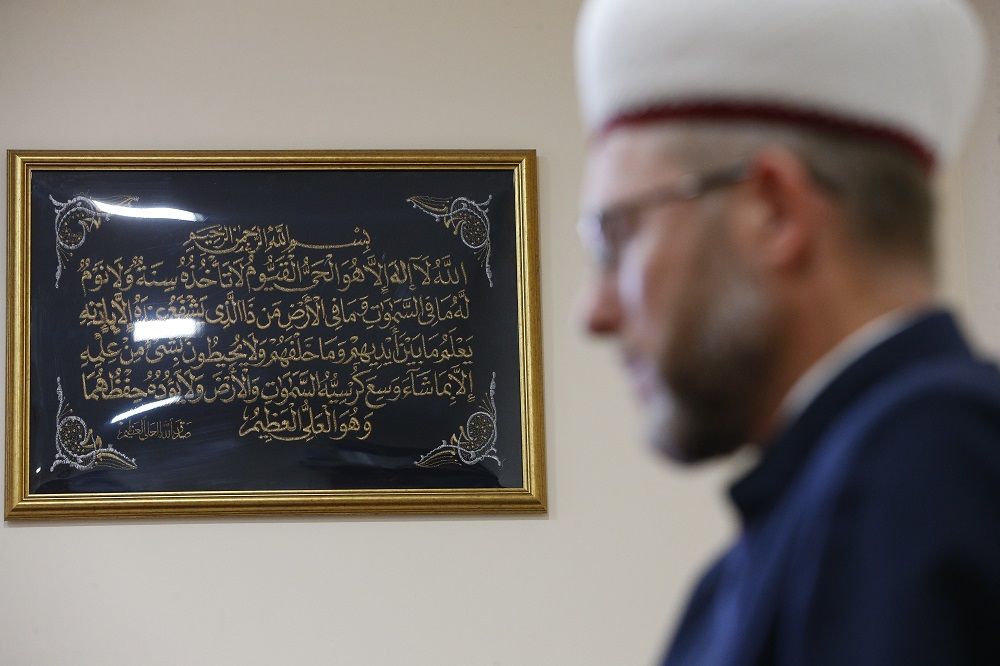
I always joked that I dreamed of being an imam of a mosque on the sea coast but I could never think that it would be Mariupol. For about a month I was an Imam there, hoping that I would return to Donetsk, and then I went to Kyiv along with my family.
How many mosques were there in Donetsk before the war? Do you have any information as to whether they all remained intact?
Almost every large city in Donbas had a mosque built there, sometimes more than one. In Donetsk, for example, there were two. Now there are fourteen mosques left under the occupation, all of them are active. Before the war, a mosque construction was begun in Horlivka, there was a blueprint ready, but it was never built.
In 2015, information was leaking from the occupied areas that the "Mufti of the ‘DPR’” had emerged. Do you know anything about this?
In the days of Yanukovych, the so-called Religious Administration of Muslims of Ukraine Yednannia was registered. During one of the interviews, the Mufti of this Religious Administration Rinat Aisin explained that the spiritual unity between the Muslims of Ukraine and Russia was implied. As soon as the occupation started, someone or he, himself, proclaimed him the so-called Mufti of the "DPR". He was seen at the events organized by terrorists, he traveled to Russia, and as early as 2014, he visited mosques across the occupied territory. Now there is less news coming about him.
As you have said, there are 14 mosques that remain active in the occupied areas. Who of the remaining imams is pro-Russian and who, on the contrary, shows no support for the occupation "authorities"?
I do not know any other imams except for the so-called Mufti of the "DPR", who would openly support the invaders. Three were forced to flee from there because they had taken part in various pro-Ukrainian events and condemned the occupiers. All other imams perform exclusively religious functions and do not interfere in political issues.
Imams of mosques were forced to take upon a position which keeps them safe: they do not say openly about what is happening there, because it would be unsafe, but simply meet the religious needs of the population.
As we know, after the annexation of Crimea, there have been searches in mosques and homes of Crimean Tatars. Has there been anything similar to that in Donetsk?
Yes, there has. The location that the Habashites [organization of charitable Islamic projects, the group founded in the mid-1980s] used as a prayer room, was totally closed down. It’s still unclear, why. The occupation authorities claimed that this was an extremist movement but, for example, the Habashites openly operate in Crimea where they have their Tavrichesky Muftiyat, officially registered in Russia. So, I think, in Donetsk it was not a religious factor that came into play, but something else. However, since the Habashites are not traditional Sunni Muslims and we don’t supervise them, we don’t know what is happening there.
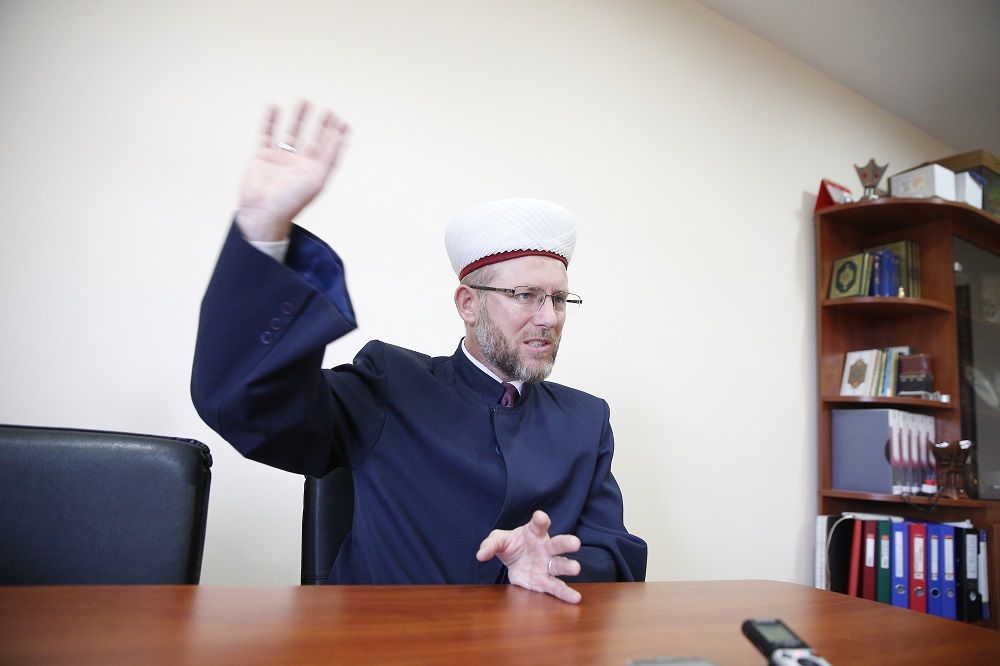
Our mosque in Donetsk was raided, too. They came after the Friday prayer, blocked the exit, ID’d everyone, walked around the premises.
According to my information, curators from the so-called security services of the occupation authorities are assigned to every mosque in the occupied areas to be aware of what is happening there.
Do you communicate with the Crimean mufti in Simferopol?
After they openly defected to the Russian side, I don’t.
In Crimea, the construction of the Cathedral Mosque is underway. They plan to open it on the fifth anniversary of the publication of Putin's decree on the rehabilitation of the repressed peoples of Crimea. As for me, it's more like a mockery, given that, in fact, repression is ongoing ... How do you explain this move?
Russia manipulates information very skillfully. Here they are saying to the Crimean Tatars: "While Crimea was controlled by Ukraine, you were not allowed to build the Cathedral Mosque, and we do allow its construction." This is all hypocrisy and lies. All officials who used to ban construction before the Russian occupation and now allowed it - they are the same people.
In general, Russia pursues a state policy of "carrot and stick". If you oppose Russian policy - you get repression and prison terms – that’s "whip". And the construction of the Cathedral Mosque is "carrot", a sort of a demonstration to the Muslim population that being occupied by Russia is a “good thing”.
Various polls show that IDPs from Donbas do not intend to return home even after de-occupation of the region. It’s not the case with Crimean Tatars. What is the difference in your opinion?
Crimean Tatars had earlier been deported, and most of them still have not returned to their homeland: far beyond the peninsula - in Uzbekistan, Turkey, and other countries, there are many more Crimean Tatars than in Crimea. And those who nevertheless moved to Crimea were almost like heroes! They left behind their houses, apartments, which they had bought, say, in Uzbekistan, to where they had been deported. They left everything and went back to live in their homeland, where they also fought to build a house and get a residence registration. It was a daily struggle against pro-Russian officials. Crimean Tatars struggled to live on their land, that's why both they and their children, who saw this struggle, crave to return there, no matter what.
As for Donbas, by the way, I think that many people want to return there, because, more often than not, people fled because of the lack of jobs, peaceful life, and prospects for development. Only a small part fled because it was dangerous for them to stay or because they had a principled stance not to obey the [occupation] "authorities". This part of the IDPs - they don’t want to return because they simply don’t know how to live among those who openly tipped off terrorists and rejoiced at the killings of pro-Ukrainian activists.
Plus, pragmatic businessmen don’t want to return either. They have already launched new businesses in other regions. After all, everyone understands perfectly well that the territory that has been occupied will be seeing serious decline for many years to come, unless some super big investment flows in.
I know that the Religious Administration of Muslims of Ukraine “Ummah” conducted a survey across the country’s regions to understand what people know about Islam and Muslims. What struck you most in the poll’s outcome?
We did it twice. The first time was before the Revolution of Dignity and the second one – during the Revolution and in its aftermath. The difference between the results we saw was striking.
Prior to the Maidan, people knew little to nothing about Muslims and the attitude toward them was either neutral or cautious. After the Maidan, when Ukraine saw the patriotism of the Crimean Tatars, the attitude towards Islam and Muslims changed much, becoming more positive.
But, this year I saw the Razumkov Center’s survey results, which surprised and alerted us. We thought that in Ukraine Muslims are well treated, while the poll has shown that among all religions, the most negative attitude is toward Islam.
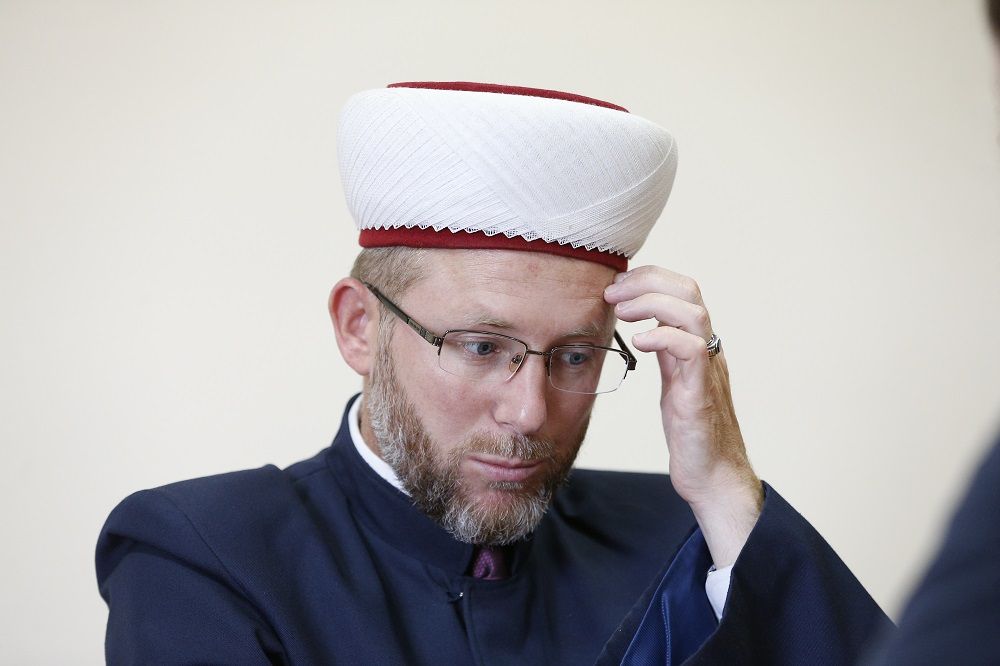
As sociologists later explained, it’s the global trend of Islamophobia that plays a negative role. In the whole world, the attitude toward Islam has deteriorated due to terrorism. This issue is being spun by global media and is also being served to Ukraine’s audience the same way. Ukrainians, as consumers of information, perceive Muslims exactly as they are shown by the media. That’s despite the fact that we have never had Muslim terrorism in Ukraine.
So Ukrainian Muslims’ attitude toward Islamic State ...
... is extremely negative. The thing is that the Muslims of Ukraine are mostly local people who have lived in Ukraine for a long time, or indigenous people like Crimean Tatars. Our Muslims are integrated into society, they live quietly among people of other religions, studying and working alongside. Therefore, our Muslims would not want to see the problems that the so-called Islamic State is spreading come to us. None of the Muslims in Ukraine need to see any of terrorist attacks and all that crime, we are absolutely not interested in the slogans that proclaim terrorist enclaves and groups.
You see, if Muslims were repressed or discriminated against, then among those discontented there would be ground for radical ideas. We do not have all this, and neither is there a core to which preachers of terrorism could appeal.
What is the actual level of integration of Ukrainian Muslims?
I would say it’s close to 100%. You see, we, in fact, do not have any refugees from Arab countries. Ukraine is not an attractive destination to emigrants - Muslims do not move to Ukraine. Firstly, we have a poor country, and there is no such social protection as in European countries (no one will pay any monthly social aid). Secondly, we have our own war, here it wouldn’t ne easy for immigrants.
According to you, the ability to integrate into society is a feature of the Muslims of Central Europe, and this is how they’re different from the Muslims of Western Europe?
Muslim communities in England, France or Germany have not exist for centuries. Mostly, they got to Europe in the 20th century or there were consequences of colonialism. When the colonial system collapsed, people from the colonies began to migrate to the metropolitan countries. For example, France owned a colony in North Africa - Algerians and Moroccans went to France. In addition, Muslims continue coming in a constant flow to Western Europe, and, more often than not, they do so as illegal immigrants. They cannot legally integrate into society, so they seek illegal jobs and housing, live in enclaves, creating a closed society. However, this is a matter of time. In 200-300 years, if there are no global conflicts in these countries, Muslims will eventually integrate.
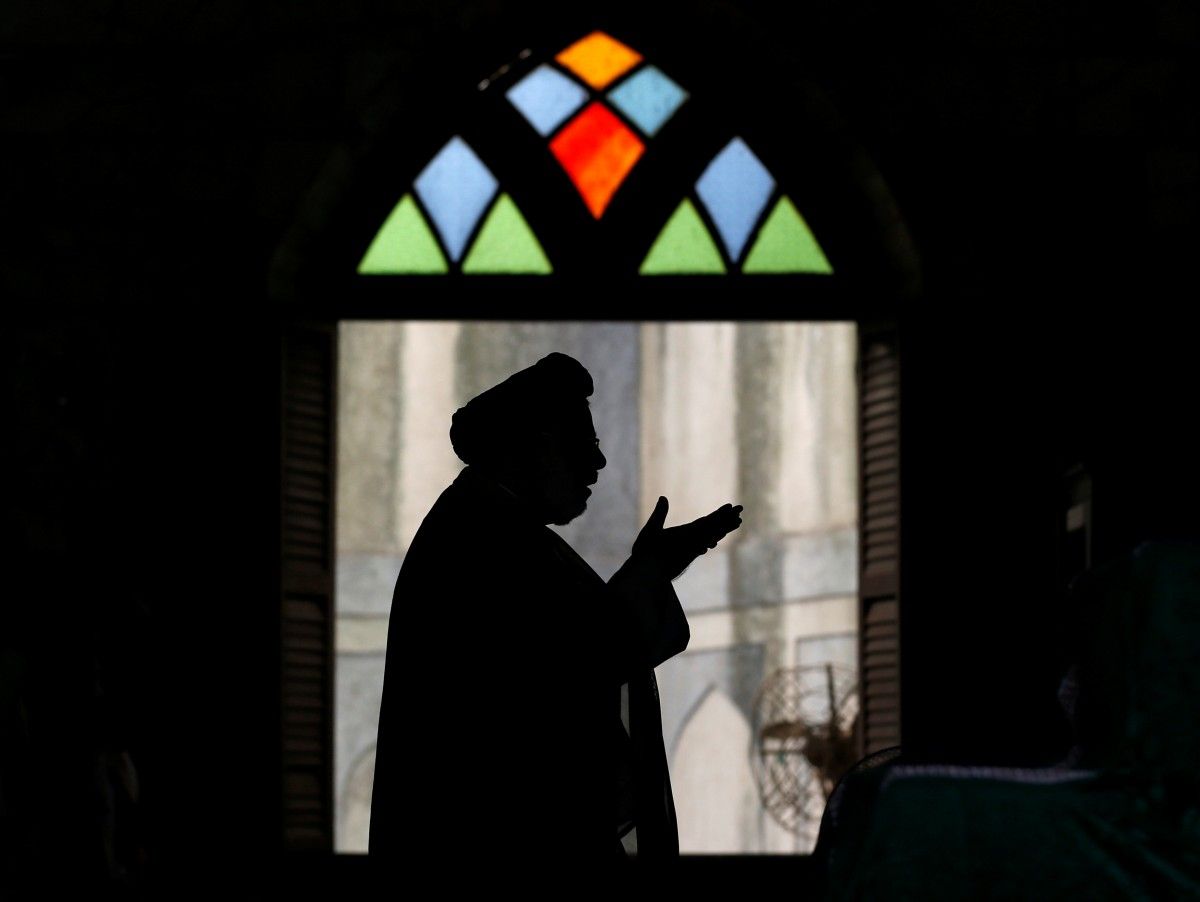
As for the Eastern European countries, Muslims have been living for many centuries there. In the Balkans - since the time of the Ottoman Empire. In Ukraine, you can say that they’ve been here for more than a 1,000 years. If we take Poland, Lithuania, Belarus, the Tatars from Crimea moved there to serve Polish-Lithuanian princes back in the 14th and 15th centuries. In these countries, different religious communities have lived side by side for many centuries, and they have long gotten along.
You always say in interviews that the Ukrainian Muslim society is very different from that in Russia, despite the proximity of the territories. Why is that so?
I studied at the Moscow Islamic University and I know pretty much about what happened there. Now, I’m not aware of the developments that much, because I do not visit Russia and do not communicate with their religious figures.
The whole problem lays in history. Russia has constantly had this fight with Muslims. There have been two Chechen wars, explosions and terrorist acts were attributed to Muslims. In Russia there is a high level of intolerance, in Moscow and other large cities there are many skinheads who consider it their duty to beat, "black people", as they say - that is, people of non-Slavic appearance.
Russia's policy is openly anti-Muslim. Muslims are being repressed (more than 10 Imams were killed in Stavropol Krai region alone), there is no freedom of religion. Of course, all of this creates a reciprocal wave of hatred, people are being radicalized, they begin to hate the country and non-Muslims. Society becomes unhealthy.
In Ukraine, we slipped through these problems. On the one hand, the current legislation contributes to this. On the other hand, it’s the mentality of Ukrainian society. In Russia, these problems will only worsen, so I hope, we will never see anything like this here.
Nevertheless, we do have certain unpleasant situations happening in our country ...
Unfortunately, this summer we had several such precedents. In Sumy and Zhytomyr there were two embarrassing searches in mosques. Literally, a week ago, during Kurban Bayram, the police came to the Zhytomyr mosque, for some reason accompanied by the migration service, to ID those who had gathered for prayer. I cannot imagine that on Easter day, police could come to a certain cathedral and ID those who gathered for a liturgy.
By the way, in Russia, it is a normal practice. When I studied in Moscow, (our Islamic University is located in the Moscow Cathedral Mosque), the police would simply set up raids there. I too was periodically arrested and put in a cell because I had no residence permit in Moscow. But, I had a student ID from a religious educational facility so they would always let me go eventually. In any case, this was at least humiliating.
When you studied in Russia, did the country's leadership meddle in the university’s affairs?
I made it there in the era of late Yeltsin and early Putin, when the level of rights and freedoms in Russia was still at a fairly good level. It was a time of relative liberalism. Then the Muslims in Russia enjoyed broader freedom, there was no pressure, and the muftis allowed themselves to disagree with the authorities.
However, in my last years there, after the second Chechen war, the Nord-Ost terrorist attack, active curtailing of rights and freedoms began, including for Muslims. Excessively free-minded Muslim religious figures began to be pulled off their posts, of the FSB and the government began to take under its control the whole Muslim life. It's no secret that students from religious education facilities were recruited as agents of security forces. Some students even boasted the fact, saying: "Now, I'm officially an FSB officer." For me it was all crazy, of course. The day after I received my diploma, I left Russia.
Is it worth considering such moves as recruitment as an attempt by the Kremlin to gain full control of yet another religion?
They already have. Today in Russia, there are simply no clergymen beyond the FSB control.
Last time I was in Moscow at the International Conference in 2009. In a conversation with one of my classmates, who already held a high position in their religious structure, told me the following: all sermons that are read in Russian mosques are written and checked in Moscow, and then disseminated across mosques. Moreover, during the sermon, the imam must read from the leaflet only what has been sent to him, and there is a man in the room verifying whether the imam said something beyond the received text. That is, back in 2009 clergymen had no right to say something from their heart. And my classmate spoke about this with such pride, boasting the fact that “everything was under control” there. So Islam in Russia has long been under control, no less than the Orthodox Church.
Let's talk about different stereotypes and cliches associated with Islam and Muslims. For example, in Islam, the phrase "Allahu Akbar," which is used to call people for prayer, is stereotypically associated to terrorists shouting it before the attack. How do you assess the negative impact of this particular stereotype on the perception of Muslims in Ukraine?
Yes, it is one thing when this expression, "Allahu Akbar", which translates as "Allah is Above All" is read on time in the azan [a call to prayer], and another thing is when a man is madly screaming at the crowd. Fortunately, we have very few people behave this way. It happens, of course, but on very rare occasions.
I consider such public behavior wrong. We are always trying to convey to Muslims that there is no need to frighten people with demonstrative religiosity. Show-off in Islam is generally forbidden and is considered a great sin. The challenge, aggression, obsessive demonstration of their religious position does not correspond to Islam. But, honestly, not all countries share such views. Somewhere a demonstrative religious position is considered almost piety. For example, it is very common in the North Caucasus.
I’ve read about a “vasatiya” principle of moderate approach, which determines, among other things, a tolerant attitude toward other religions. However, some believe that this principle makes Muslims weak and unable to protect their interests. Are there conflicts on this ground?
By and large, we have no conflicts in Ukraine. There can be cold relations, for example, with Habashites, but this is an intra-confessional problem, we try not to fowl or own nest. The principle of "vasatiya", in fact, is nothing new. It is inherent in Islam from its very first day and the very first preaching of Prophet Muhammad. Moderation as a rejection of extremes and radicalism is one of the basic principles of Islam.
When in the 20th century a part of Muslims began to radicalize (there was no such thing before; terrorism is not inherent in Islam) and terrorist groups appeared, the Muslim movement that preached "vasatiya" principle immediately became relevant. Muslim scholars, theologians, realizing that there are some leaders who call for extremes, began to call for the rejection of radicalism. Thus, the principle of "vasatiya", which was always inherent in Islam, became relevant.
It does not make Muslims spineless; it must balance society, so that ideas of violence that contradict Islam do not spread.
Unfortunately, we are accustomed to the phrase "radical Islam," however, there’s neither "radical Buddhism" nor "radical Christianity". Do you think this is also the consequences of stereotypes?
Yes, this is a cliche that was invented and applied to Muslims precisely. This is a manipulation and a cliche that is being spun in the media. I believe that he is untruthful and unfair.
Terrorists could be of any religion. For example, the "Russian Orthodox Army" in Donbass, committing crimes against dissenters and believing that there should be only Moscow Orthodoxy. But no one has ever used the term "Orthodox terrorist" or "Orthodox extremist".
Another example is that there is now repression ongoing against Muslims by Buddhists in Myanmar, but we do never see the term "Buddhist terrorists" anywhere. And unfortunately, this term is being applied to Islam.
By the way, speaking about Myanmar. In early September, a rally in support of the Muslims oppressed there took place in Kyiv, but it was not a very crowded event. Why was that so?
According to my estimates, several hundred people came out there for the rally. Several factors played their role. Firstly, the organizers reported on the event only the night before, and, secondly, it was a working day. Most importantly, people gathered anyway and appealed to the government to take a principled position in the international arena.
What should this position be, and why is it so necessary?
When we have problems, we constantly appeal to the world community. For example, we appeal to international authorities on all issues related to the military conflict in Ukraine. Most countries respond so, respectively, our country should also take an honest and principled position on conflicts in other regions.
Alas, the reaction of our official authorities is often delayed. Therefore, we wanted to encourage our statesmen not to remain silent, but to honestly stand by the cessation of repression against civilians ...
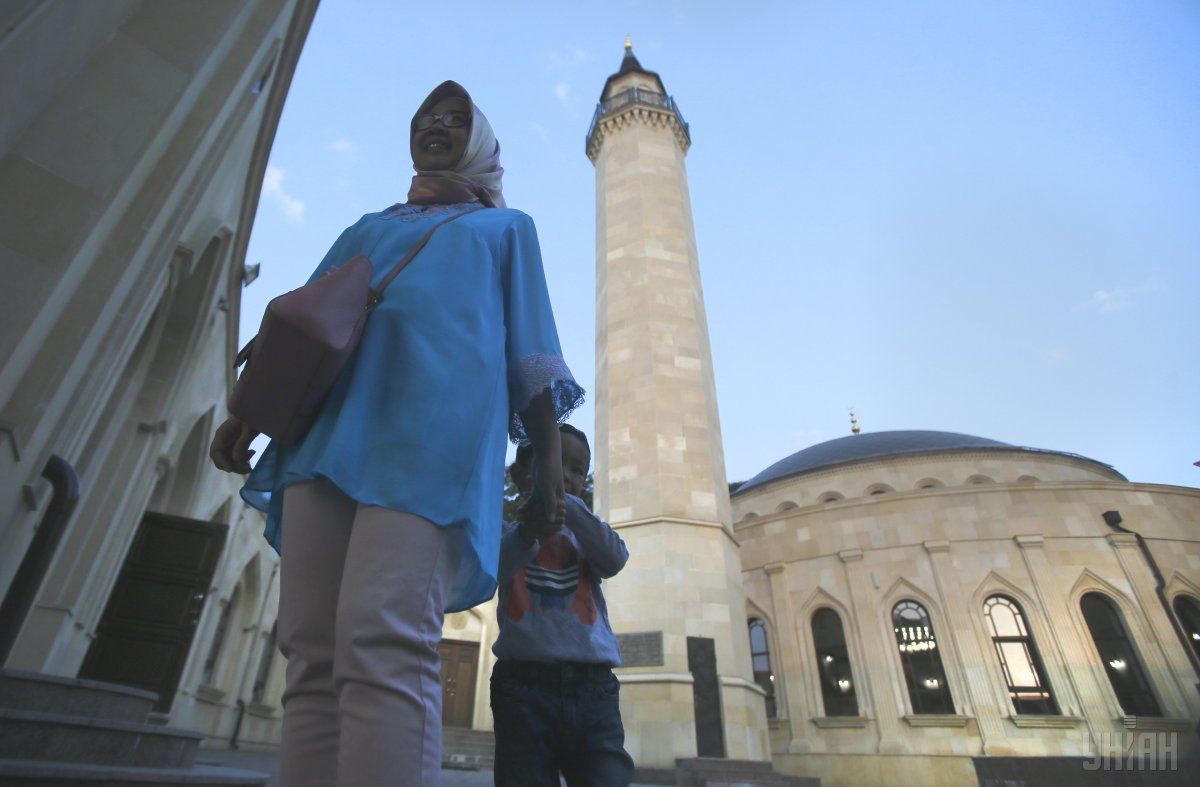
Turkey, for example, took a clear and principled position. Turkey is the country that has received most refugees from Syria and Iraq. [Turkish President Recep Tayyip] Erdogan recently spoke with the Prime Minister of Bangladesh, asking them to open the borders for the refugees that Turkey is ready to finance. Therefore, Turkey is popular in the Muslim world.
Of course, we do not have such a great position economy-wise, but doing at least something would already be a big step. If Ukraine somehow helped the victims, this news would fly across through all Muslim countries, playing a huge role in popularizing Ukraine. Everyone would say: here, Ukraine, which is a non-Muslim country, is still so generous and compassionate.
Returning to the topic of various cliches, what can overcome them?
Objectivity and fairness. Either we call all terrorists by their religious affiliation, or we don’t name their religious affiliation at all. On the other hand, the problem of terrorism must be overcome by the Muslim society itself, since it is impossible for non-Muslims to defeat terrorists who come forward with pseudo-Islamic slogans. Muslim society must itself feel the pain of and squeezed out of itself this infection.
In April this year, a round table "Christian-Muslim dialogue" was held, where representatives of various religions communicated. Is there such a dialogue between ordinary people, supporters of different religions?
At the domestic level, it is always easier and simpler. Neighbors and friends, more often than not, pay no attention to the difference in religious affiliation. In Ukraine there is no Islamophobia, and, in general, the situation at people’s level remains healthy.
But at the state level, there’s work to do. After all, dialogue and mutual understanding do not emerge by themselves, it is necessary that people see that we all have the same moral values. The best way to achieve is the joint action by Christians and Muslims (charity, environmental events, national holidays). Now, a very good role is being played by joint chaplainship during the war.
What other charity events, apart from the chaplainship, does Ummah set up?
It’s taking care of servicemen in the ATO zone, we distribute food and clothes to the needy, we try to help orphanages. Several hundred Muslim orphans receive monthly benefits totaling UAH 2,000.
We have a volunteer movement "Maryam" - our women, Muslim women, care for orphans with disabilities. We periodically feed homeless people, we also held events for refugees from Crimea and Donbas. During Ramadan, we feed coreligionists, on Kurban-Bayram – we give out meat of sacrificed animals.
As far as I know, in Kyiv there is also a Muslim gymnasium "Our Future"...
Islam is a religion that mandates Muslims to study. The first word that was sent down in the Holy Quran was the word "read".
Are there non-Muslim children in the gymnasium?
Yes, some parents wanted to send their children to our gymnasium.
The thing is that we can boast a really high level of security, drug traffickers will not sneak through to us. Parents know that nothing will happen to their kids. Also, our children are fed with clean halal food, there are lessons on moral and ethical education.
And are there lessons of Islam?
It's like electives.
That is, for non-Muslim children they are not mandatory, right?
We even have Muslim parents who may not have their kids attend some classes if they do not want to. In the gymnasium, there are elective classes in the Arabic language, so that children learn to read the Holy Quran, lessons on memorizing the Quran, and Muslim ethics.
Have you read the Bible?
Yes, I have.
Christians tend to call themselves believers, but at the same time disregard the rules of the Bible ...
Muslims have the same situation.
Why do not our Muslims follow massively some of the precepts of Islam carefully observed by Muslims in the Arab countries?
The Soviet Union, which saw evil in religion and considered it its duty to fight against religiosity, raised non-religious Soviet citizens. Therefore, the fight against religion was not only against Christians, but against Muslims. Generations of non-religious people were raised, being very far from observing any norms, so this affected everyone. Many Muslims did not read the Quran, so they need to be educated, and this is a common problem for the entire post-Soviet space.
In your opinion, what are the main problems of Muslims in Ukraine today?
Firstly, we cannot always get something to what we have the right by law. In some cities, Muslims need mosques to be built. Actually, there is such a situation in Kyiv. Those numerous times we appealed to municipal and regional authorities, asking for a land plot to build a religious building - all those times we were rejected.
Secondly, there is a catastrophic situation with Muslim cemeteries. Muslims need to bury their dead in separate sectors. We do not need a separate cemetery, we just ask for a separate sector in the city cemetery so that we can bury the dead according to our customs. In some cities, the authorities provide plots immediately on the initial request, as it was in Lutsk, although the community of Muslims there is very small. But in Kyiv we have been fighting for a long time. We are told: "Your question will be considered." But the cemetery, where Muslims have been burying for decades, is filled. People die, and there is nowhere to bury the bodies, while local authorities seem to not to be responding quickly.
There is also a problem for Muslim women in Ukraine. Administrative service offices often refuse to accept photos for IDs where women wear a scarf, while there is no problem for them to accept such photos for a foreign travel passports.
You once said that "Said" is translated as "happy." Are you a happy man?
Yes, thank God.
What makes you happy?
It’s the belief. It gives me the meaning of life. I believe that God directs me wherever he needs me to be, and where I am needed.
Iryna Shevchenko

